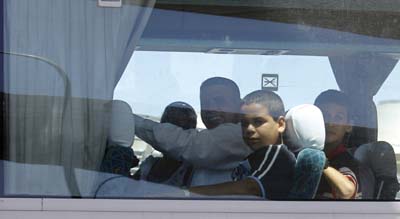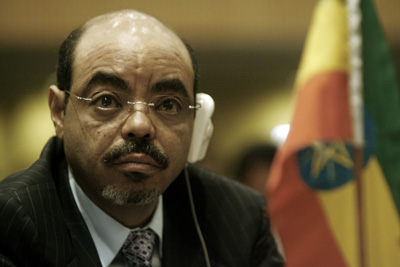
In Ethiopia, anti-terrorism law chills reporting on security
How can an Ethiopian reporter cover the activities of Ethiopia’s leading opposition figure, Berhanu Nega, or an attack by the Ogaden National Liberation Front (ONLF) rebels without risking prosecution and a 20-year prison sentence? Such questions have haunted Ethiopian journalists since a far-reaching anti-terrorism law came into effect in 2009. The law criminalizes any reporting…

Ethiopian journalist illegally detained since Sunday
New York, June 21, 2011–The Committee to Protect Journalists called on Ethiopian authorities today to immediately release journalist Woubshet Taye, at left, who has been held since Sunday.Police picked up Taye, deputy editor of the leading independent weekly Awramba Times, at his home in the capital, Addis Ababa, at 3 p.m. and confiscated several documents, cameras,…
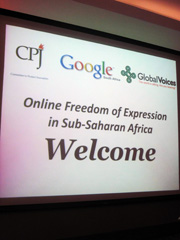
The Internet in East Africa: An aid or a weapon?
Frank Nyakairu has seen it all. A veteran war reporter, he has covered the horrors of northern Uganda and Somalia, among others places. And throughout this time of rich but often appalling experiences, he has also seen the auspicious–and sometimes terrifying–impact the Internet has had on East African reporters. Nyakairu spoke at a recent workshop held…

Ethiopia censors UNESCO World Press Freedom Day event
New York, May 5, 2011–Officials in Ethiopia hijacked a local UNESCO-sponsored World Press Freedom Day event, installing government-backed journalists as speakers and nixing independent journalists slated to speak. There was no discussion, as originally planned, of this year’s global theme on new media and the Internet at the Tuesday forum, according to local sources and…
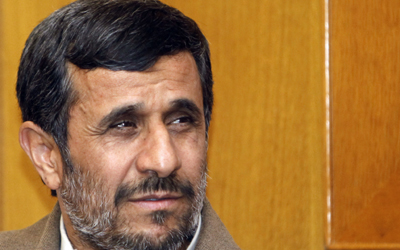
The 10 Tools of Online Oppressors
The world’s worst online oppressors are using an array of tactics, some reflecting astonishing levels of sophistication, others reminiscent of old-school techniques. From China’s high-level malware attacks to Syria’s brute-force imprisonments, this may be only the dawn of online oppression. A CPJ special report by Danny O’Brien
Audio Report: The 10 Tools of Online Oppressors
In our special report, “The 10 Tools of Online Oppressors,” CPJ examines the 10 prevailing strategies of online oppression worldwide and the countries that have taken the lead in their use. In this accompanying podcast, CPJ Deputy Director Robert Mahoney notes that these strategies range from sophisticated cyber-attacks to traditional brute-force techniques. Listen to the…
Ethiopia should allow German broadcasts
New York, April 11, 2011–The Committee to Protect Journalists is calling on authorities in Ethiopia to ensure that broadcasts of the German state-funded station Deutsche Welle, which had been jammed, be allowed to air freely. Local journalists confirmed a report by the Bonn-based international broadcaster that its programs were inaudible in Ethiopia last week until…
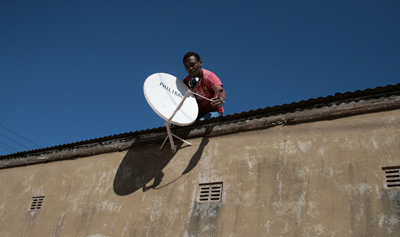
Sub-Saharan Africa censors Mideast protests
As news of Middle Eastern and North African protests swirl around the globe, satellite television and the Internet prove vital sources of information for Africans as governments fearful of an informed citizenry and a free press such as in Eritrea, Equatorial Guinea, and Zimbabwe impose total news blackouts on the developments.
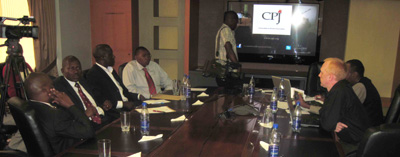
Nairobi Attacks launch probes investigative reporting
At CPJ’s book launch of our annual survey of press freedom conditions across the world, Attacks on the Press, today in Nairobi, we focused on the growing theme of challenges to investigative journalism in Africa, with a particular look at East Africa. The subject certainly resonated with the local and foreign journalists here.
